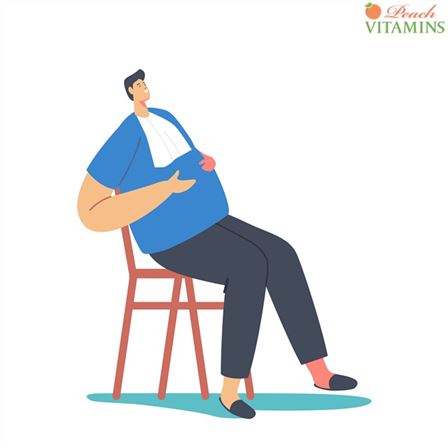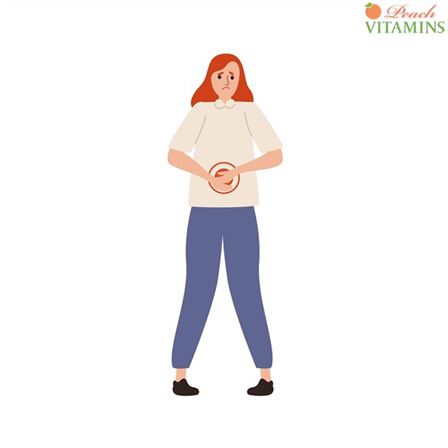When people think of natural remedies, they usually think of herbal medicine, but did you know there are other types of natural remedies too? In this article, we’ll discuss what Ayurveda is, why it works, and which natural remedies work best for bloating and gas relief.
There are several types of natural remedies for gas and bloating. Some are very effective, while others aren’t quite as good. We’ll go through each type of remedy and explain what makes them effective.
Are you suffering from bloating and gas? If yes, then Ayurveda has got you covered. This ancient Indian system of medicine offers natural remedies for various ailments, including digestive problems.
Ayurveda is a holistic approach to health care that focuses on the whole person. It emphasizes balance and harmony between mind, body, and spirit. The practice dates back thousands of years and was developed by the Vedic civilization.
Here are some ways to relieve bloating and gas naturally.
Why Is It Important to Know About Ayurveda?
Ayurveda is an ancient science which was developed thousands of years ago. The word “Ayurveda” means “The Science of Life“. This science is based on the belief that everything in this universe comprises energy and matter. Everything in our body consists of five elements: earth (mineral), water, fire, air and ether.
Each element has its own properties and characteristics. For example, Earth is heavy, Water is cold, Fire is hot and Air is light. Ether is the most subtle element and cannot be seen.
Ayurveda believes we are made up of three bodies: physical, emotional and mental. Physical body includes bones, muscles, skin, hair, nails etc. Emotional body includes heart, mind, eyes, ears, nose, tongue, throat, stomach, intestines etc. Mental body includes brain, intellect, ego, memory, intelligence, consciousness, karma, intuition etc.
Ayurvedic medicine is one of the oldest medical systems in the world. It is based on the theory that there is a balance among these three bodies. When the balance is disturbed, illness occurs. In Ayurveda, disease is considered as imbalance between these three bodies. To restore this balance, Ayurveda prescribes certain herbs, foods, exercises and lifestyle changes.
Ayurvedas’ principal goal is to cure diseases and maintain health. Ayurveda believes every person has his/her unique constitution. There are different types of people who differ from others in their personality, behavior, temperament, and character. Some people are strong, some are weak, some are sensitive, some are calm, and so on. Every person’s constitution is determined by the combination of three doshas – Vata, Pitta and Kapha.
Vata dosha handles movement, space and air. Pitta dosha is responsible for metabolism, digestion and excretion. Kapha dosha handles tissue formation, growth, and reproduction.
This digestive symptom may also be accompanied by an enlargement of the waist called abdominal distension (1345 Bloating is very common, occurring in 16–31% of the general population. (healthline.com)
What Are Some Common Causes of Gas and Bloat?
The most common causes of gas and bloating include eating too much processed food, drinking too many sodas, and consuming too much alcohol. Other factors, such as stress, anxiety, and poor digestion, can contribute to these symptoms.
Gas and bloating are caused by excess gas production in the intestines. This occurs when there is an imbalance in the bacteria in your digestive system. The body produces hydrogen ions which cause the water in the intestine to expand.
Proper nutrition is key to keeping your digestive system healthy. Eating foods rich in fiber, like fruits, vegetables, whole grains, nuts, seeds, beans, legumes, and dairy products, help keep you regular and prevent constipation. Foods high in protein like lean meats, fish, poultry, eggs, milk, cheese, yogurt, and tofu can help build strong bones and muscles.
Avoiding certain foods that cause gas and bloating includes spicy foods, carbonated beverages, fried foods, fatty foods, caffeine, chocolate, citrus fruit, onions, garlic, broccoli, cauliflower, cabbage, Brussels sprouts, raw carrots, and tomatoes.
Stress, anxiety, and poor diet can lead to gas and irritable bowel syndrome. If you feel bloated after meals, try taking a walk outside or doing some deep breathing exercises. Try to relax and focus on your breath. You could also drink warm water with lemon juice to stimulate digestion.
How Can Ayurvedic Herbs Help With Bloating and Gas?
The system focuses on prevention and treatment through diet, lifestyle changes, herbs and yoga. Ayurvedic herbs help reduce bloating and gas. They work in the digestive tract and prevent excess gas from building up. In addition, they promote healthy digestion and increase appetite.
The following herbs are used to treat bloating and gas:
1) Shatavari – A herb that increases blood flow and helps relieve constipation.
2) Triphala – This herb contains three different fruit acids which help break down food and eliminate toxins.
3) Ashwagandha – An herb that relieves anxiety and stress.
4) Amalaki – An herb that reduces inflammation and cleanses the body.
Which Ayurvedic Herbal Remedies Work Best for Bloating and Flatulence?
The primary goal of Ayurveda is to prevent disease and promote health. This system includes many herbs, minerals, oils, and foods. There are four types of medicine: Internal, External, Nutritional, and Spiritual.
Internal medicines include drugs taken orally or applied topically. They treat diseases inside the body. Examples of internal medicines are antibiotics, antihistamines, antacids, painkillers, and sleeping pills.
External medicines are used to treat conditions outside the body. Examples of external medicines are creams, lotions, ointments, shampoos, and soaps.
Nutritional medicines contain vitamins and minerals. Vitamins help your body produce energy and fight infection. Minerals help you build strong bones and teeth.
Spiritual medicines use meditation, yoga, chanting, and breathing exercises to improve mental and physical health.
Between 10% and 25% of otherwise healthy people complain of occasional abdominal bloating. (my.clevelandclinic.org)
How to Use an Ayurvedic Cleansing Routine
Ayurveda is the science of life. It is based on the principle of balance and harmony. The goal is to achieve this through proper diet, exercise, meditation, yoga, and Ayurvedic medicine. This includes herbs, oils, minerals, and other natural remedies.
The main principles of Ayurveda include:
• Dietary restrictions
• Exercise
• Meditation
• Yoga
Undigested food passes through the small intestine into the large intestine where it undergoes fermentation by bacteria. These microorganisms release gases, which causes bloating and flatulence.
The digestive process begins with the ingestion of food. Saliva moistens the food, which then mixes with stomach acid and enzymes secreted by the pancreas. As the food moves through the esophagus, it’s mixed with bile produced by the liver.
Bile emulsifies fats and breaks them down into smaller particles. The resulting mixture is pushed through the intestines by peristaltic waves.
Proper digestion depends on several factors. Your diet should be balanced. You need enough protein and carbohydrates to support growth and repair tissues. Fiber is important because it keeps you regular. Water intake is also essential for keeping organs functioning properly. Proper sleep, rest, and exercise can also contribute to good digestion.
How to Use Yoga Poses to Relieve Bloating and Gas in Women
Doing yoga is a great way to relax your body and mind. It is exercise that combines physical movement with meditation. There are many types of yoga, including Hatha, Vinyasa, Iyengar, Yin, Restorative, and others. Each type of yoga focuses on specific areas of the body.
For example, Hatha yoga focuses on strengthening the muscles and improving flexibility while Vinyasa focuses on building strength through controlled breathing.
Yoga helps you improve your posture, strengthen your core, reduce stress, stretch out tight muscles, and increase flexibility. In addition, yoga can help you manage chronic conditions such as diabetes, high blood pressure, asthma, arthritis, migraines, depression, anxiety, insomnia, and heart disease.
How to use yoga poses to ease bloating and gas in woman:
1. Lie down on your back and place your knees up towards your chest. Bend your elbows at 90 degrees.
2. Place your hands behind your head and bring them together. Stretch your arms upwards and hold this position for 5 seconds. Repeat 10 times.
3. Bring your right hand forward and extend your arm. Hold the pose for 5 seconds. Repeat this 10 times.
This simple remedy will relieve bloating and gas in women without causing any discomfort or pain.
Final Thoughts
In conclusion, Ayurvedic medicine for bloating and gas relief is one of the oldest forms of healing available today. It works well for people who want to get rid of their bloating and gas naturally. However, if you have severe cases of bloating and gas, you may need to see a doctor.
Which Ayurvedic remedy is right for you? Having a free fifteen-minute consultation with Ayurvedic practitioner Cosmic Mike will give you all the information you need to decide about what treatment plan is best for you.
FAQs for Ayurvedic Medicine for Bloating and Gas
✔️ Does Ajwain Help in Bloating?
Yes, Ajwain helps in bloating because it has anti-inflammatory properties. The oil also contains essential fatty acids which help in digestion and absorption of nutrients.
It is used as a digestive aid for constipation. It can be taken with milk or water to get the best effect. You may take 1-2 teaspoons of this oil daily.
Ajwain is an herb that is native to India. It belongs to the family Apiaceae (Umbelliferae). Its name comes from Hindi word “ajwa” meaning black pepper.
✔️ Can We Mix Ashwagandha and Triphala Together?
Yes, we can mix Ashwagandha and Triphala together. However, we should be careful when mixing them together because they may cause some side effects. If you want to try this combination, please consult your qualified health professional first.
Digestive issues are very common nowadays. They include stomachache, indigestion, diarrhea, nausea, vomiting, bloating, and flatulence. These problems make us feel uncomfortable.
Poor diet, unhealthy lifestyle habits, and stress causes impaired digestion. This means that we must pay attention to our eating habits, sleep patterns, and overall health.






